Church Of MO – 2001 KTM Roll-Out

If you read my piece about getting Behind the Scenes at KTM, you might recall how the Austrian manufacturer has really exploded in recent years. So much so that it’s goal is to capture the on-road market like it has the off-road scene. Well, by 2001, KTM was well established in the off-road world, and Mark Kariya’s piece about the 2001 KTM Roll Out highlights everything from the 125SX at the bottom of the range, up to the 520 SX at the top. As impressive as KTM’s lineup was, it would be another 14 years until Team Orange would capture it’s most elusive prize, the 2015 AMA Supercross championship – the crowning jewel on the company trophy shelf.
2001 KTM Roll-Out
KTM is best known by most American enthusiasts as a leading European Advertisement
manufacturer of off-road/enduro motorcycles (a memory of the days when John Penton first imported the bikes to meet his particular needs for enduro bikes, no doubt).
KTM hopes to change that perception via a large-scale remarketing effort. You saw an initial stage of that in this year’s AMA/EA Sports Supercross Series as well as the AMA/Chevy Trucks U.S. Motocross Championships. While KTM has always made motocross bikes, it’s never really been well-known and popular in the U.S. as a major player in the MX market.
As the giant orange KTM 18-wheeler at all AMA Pro Racing events testifies, KTM has made motocross in America a priority. It’s only fair, of course, since Americans are the leading consumer of its products, which now number 30! That’s even more impressive when you consider that all but five are pure dirt models, including the built-on-order 660 Rally intended strictly for races like the Dakar Rally. KTM is obviously heavily into dirt bikes and racing.
But motocross? Believe it!
Last year, KTM broke from a long-standing tradition and began to take its motocross models on a different development path than the off-road racers. For the first time in company history, the SX motocross bikes will not simply be hot-rodded enduro bikes. Instead, they are bikes that are focused specifically on the unique requirements of motocross, which is how the Japanese pursue MX glory.
KTM knows it’s going up against giants but believes it’s got what it takes. Based on our experiences, we tend to agree. For the first time ever, KTM recently made available every one of its motocross bikes for the enthusiast press.
After a brief technical overview of the line-up by KTM’s Scot Harden and Tom Moen, everyone got a chance to ride all five SXs at the Hungry Valley MX track near Gorman, California, just off I-5. It was a great day, the stuff dreams are made of.
Technically speaking, there are significant changes on just about every model, including the redesigned 400cc and 520cc thumpers. Incidentally, the factory is allotting substantially more of the hard-to-get-this-year four-strokes to eager Americans. This is good news. We’ll start small and work up. The 125 SX (being used to run away 1-2 in the 125 cc MX GPs as this is written) gets a slightly longer stroke, up to 54.5 mm from 54.
That makes it minutely undersquare at 54 x 54.5mm compared to the previous bore and stroke measurements of 54 x 54 mm. KTM’s goal here was to boost low-end, thus smoothing the transition to the already healthy midrange and class-leading top-end wallop.
Complementing that update is a new piston, again with one ring (the E/XC piston sports a pair of rings); a lighter crank for quicker revving; revised porting and a narrower-profile, while the formerly plastic ignition cover is now powder-coated magnesium. The clutch cover will also be powder-coated to maintain its look longer. The 125 shares the mag cover with the 200 (the cases on both bikes are identical). A 12mm longer shift lever that sticks 6mm farther out, promises to provide easier access to the shifter and easier shifting. Frankly, KTM’s 250 SX has fallen short in the past, possibly hindered by its enduro heritage.
That may very well change now that KTM is consciously developing the SX and E/XC models independent of each other. In order to make the ’01 250 SX more aggressive in the motocross theater of battle, the engineers in Austria modified the exhaust porting, reshaped the combustion chamber, designed a lighter piston and remapped the digital ignition. They also sent the crankcase covers to the powder coater to preserve the good looks longer and incorporated the longer, easier-to-hit shift lever of the 125/200.
Motor changes to the 380 SX were more limited, though development hasn’t stopped. But for now, revised jetting is about it. For 2000, KTM’s new four-strokes created a furor. Using a brand-new design, the bikes were as narrow as two-strokes and lighter than other thumpers without costing two limbs. Belgian Joel Smets just wrapped up the 500cc World MX Championship in his first year on a KTM doing so three races early, to boot! Swedish teammate Peter Johansson is currently in second.
So, to improve them for 2001, KTM came up with a stronger crank that should also promote longer main bearing life plus the use of a bearing in the clutch hub instead of a bronze bushing. In addition, the radiators now dissipate heat more effectively.
More model-specifically, the 520’s piston features a wider skirt for increased durability, while the 400 now has a close-ratio six-speed transmission instead of being stuck with the 520’s four-speed (which is still all that bike needs).
What about the rest of the bike? Simpler graphics are common to all KTM machines, featuring a ’70s-look oval KTM logo actually embossed into the radiator shroud plastic for unprecedented durability. Expect long life from the two-color seat as well. A thick layer of protection covers the airbox, meanwhile, helping to prevent boot-derived scratches. KTM claims a new fuel tank helped to provide a narrower section near the front of the seat.
Chassis changes also extend to the suspension. Each of the ’01 full-size bikes comes with a 43mm WP Upside-Down Multi-Adjuster (USD MA) cartridge fork and WP Progressive Damping System (PDS) shock, again operating sans linkage.
KTM claims that the valving is the same for all SXs (and is stiffer than incorporated into E/XC suspension), though the125 naturally has lighter-rate springs. The forks permit independent adjustment (in 26 steps) of both compression and rebound damping in each leg. All forks now sport updated cartridges that were first tried successfully on the four-strokes; these yield more progressive action from the beginning of the stroke, according to KTM.
As for the shock, its rebound adjusting system is now more like a Kayaba, employing a needle to help regulate oil flow. KTM claims it will offer greater adjustability and “reduce thermal load on the piston foot.”
Magura’s nearly indestructible tapered aluminum handlebar now comes on all of the big SXs, not just the four-strokes. The Magura front brake lever is shorter and uses a 17mm offset (instead of 18) to improve braking performance and feel. Listening to customer feedback led KTM to specify a smaller piston with sintered pads in the Brembo rear-brake system in order to decrease the propensity to lock up the back wheel unintentionally.
You’ll also notice the SX swingarm legs are one-piece extrusions. KTM insists it offers cleaner cleaner looks as well as lighter weight and better strength. Bridgestone M77 front and M78 rear tires come on both two-strokes and four-strokes. For all of this, you’ll be pleased to know that KTM held the line on pricing, which makes them competitive on the showroom floor as well as on the track (for specific prices, see the accompanying box).
So what are they like to ride? Most impressive.
We planned/hoped to start with the 125 and work up through the range as the day wore on, but with more riders than bikes available, it quickly became “grab anything that’s not moving.” Still, we’ll present them in order.
The 125 SX didn’t become available to ride until the end of the day, unfortunately. By that time, we’d become somewhat spoiled by power, especially since we’d just hopped off the 400. Nonetheless, it didn’t take too long to get used to keeping the motor spinning and the 125 SX pulls well from the midrange and revs. While we didn’t have much basis for comparison on this model, we heard others remark that the new engine does indeed seem stronger off the bottom than the 2000.
Shifting proved to be very easy and positive, unlike KTM 125s we remember from years ago. Naturally, the 125 possessed a light feel compared to the other, larger SXs, and it was easy to move around on. It preferred faster, outside lines in corners… a trait the entire SX line exhibits. This makes sense when you consider that most of the development is done with input from the Euro-based GP teams that ride fast, rough, un-prepped tracks most of the time.
The 250 SX immediately impressed us with its quick, aggressive feel. This thing barks! It felt like it’d have no problems running with the new RM250 we rode a few weeks ago, though it wasn’t quite as smooth off the bottom and the shifting seemed a bit notchier. It’s strongest through the midrange and has a quick-revving response with only a hint of vibration. The engine should endear itself to those who demand instant power to clear jumps out of turns. The Magura hydraulic clutch, common to the entire range, was a joy to use.
Like the 125, the 250’s suspension felt firm and controlled, though the Hungry Valley MX track wasn’t rough enough for critical suspension evaluation. You could also take advantage of the 250’s competitively feathery feel to clamber around the bike unmolested by any boot-grabbing shrouds or the like We actually took our first ride of the day on the 380 SX, which was probably a good choice. Its engine proved surprisingly docile, enabling us to kind of get used to the track. We expected a very hard-hitting sort of Open-class power, but the 380 churned out very usable steam, with the best part from low to mid.
Get it revving, and it displayed a hint of vibration like any other big single. Those who thrive on brutal, hard-hitting thrust will no doubt buy an aftermarket pipe before they even wash the dust off after their first ride, but those who appreciate easy-to-use, four-stroke-like delivery may enjoy the 380 as is.
It felt minutely more planted and resistant to rider input than the 250 SX, but it wasn’t a brick by any means. We appreciated the new rear brake, as it provided the pedal modulation and feel necessary to avoid locking up unexpectedly yet still offered good decelerating ability. The 400 SX may just have been our favorite of the bunch. Both four-strokes did feel slightly heavier than the two-strokes, but they were nothing like trying to herd a trailbike around the track. The extra few pounds made the biggest difference in suspension plushness, providing better small-bump compliance and seeming to maintain similar bottoming resistance.
We really loved the 400’s engine with the new six-speed gearbox. The new tranny makes it easier to keep the motor spinning where it’s happiest, and it doesn’t fall off the cam when you grab the next gear a bit early. We can’t imagine having just a four-speed in the 400.
Naturally, the 400 doesn’t make sheer power like the 520, but the 400’s delivery is also less intimidating, making it easier for those of us who aren’t so accomplished as MX kings to cope with negotiating confounding tracks. The 400 SX lets you use more of its capabilities, and many will find that a rewarding feeling. Last but certainly not least is the mighty 520 SX. This is the bike that just won the 500cc World MX Championship in the very capable hands of Joel Smets. Most Americans don’t know or care who he is, but the man is talented, and he simply loves to ride.
If you like power, you’ll also want to ride the 520 SX every chance you get. This thing is all about shredding rear tires and blasting those behind you with rocks, dirt clods and any small stray animals that happen underfoot. Though it makes big power, it’s also easy to use. You can dial in just a bit as you’re treading the delicate line of traction exiting a smooth, hard-packed clay turn then let ‘er rip to gather steam for an approaching jump. The 520 didn’t seem to mind one bit if we simply left it in third gear around the entire track. Where the 400 needs its six-speed, the 520’s offers plenty of selection with just four.
With five full-size SXs, KTM probably has a bike that you could be very happy with. Each of them feels like it has the potential to be very competitive in its class as well as being fun to ride. KTM and motocross may well be on its way to becoming synonymous.
Another thing: KTM encourages you to ride the bikes quite a bit to get them broken in, especially the four-strokes. KTM leads the class’ manufacturers championship as well, all because of the success of the new Racing Four-Strokes. That’s not to say you can forget about maintenance, but you sense that KTM isn’t afraid of matching durability with anyone.

Troy's been riding motorcycles and writing about them since 2006, getting his start at Rider Magazine. From there, he moved to Sport Rider Magazine before finally landing at Motorcycle.com in 2011. A lifelong gearhead who didn't fully immerse himself in motorcycles until his teenage years, Troy's interests have always been in technology, performance, and going fast. Naturally, racing was the perfect avenue to combine all three. Troy has been racing nearly as long as he's been riding and has competed at the AMA national level. He's also won multiple club races throughout the country, culminating in a Utah Sport Bike Association championship in 2011. He has been invited as a guest instructor for the Yamaha Champions Riding School, and when he's not out riding, he's either wrenching on bikes or watching MotoGP.
More by Troy Siahaan



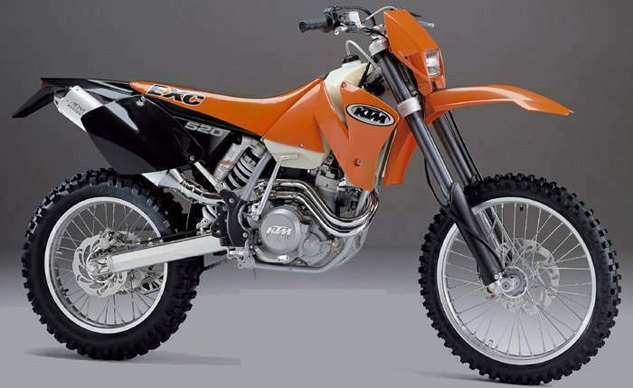
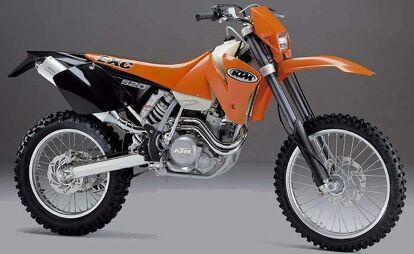









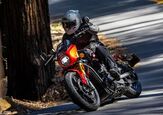
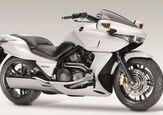
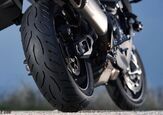
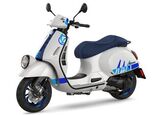
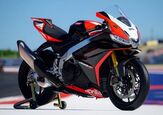
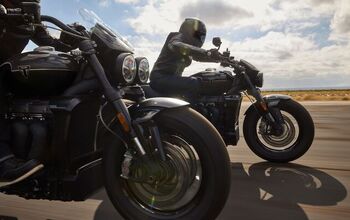
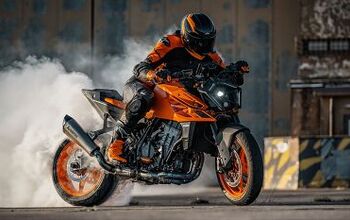
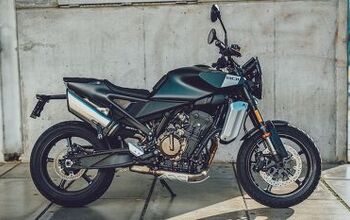
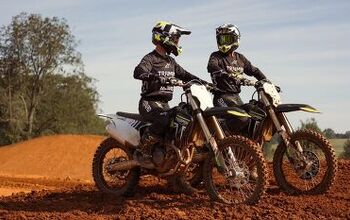
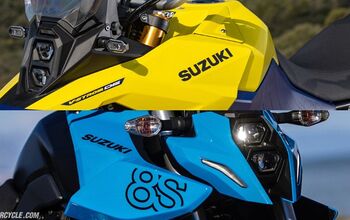
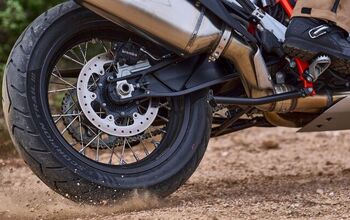
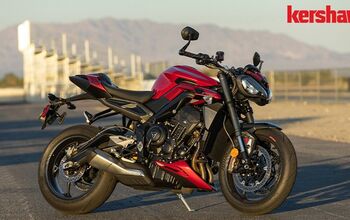
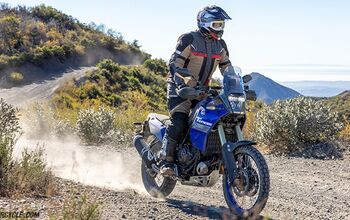
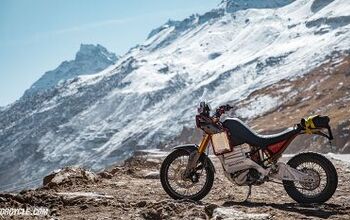
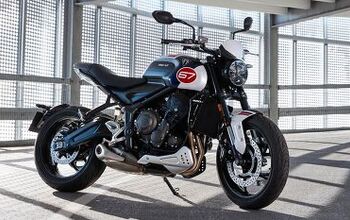
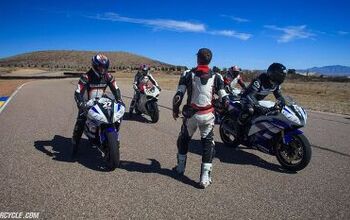
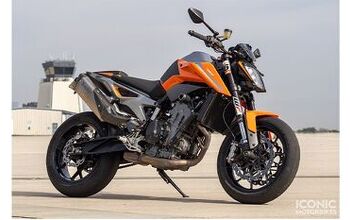
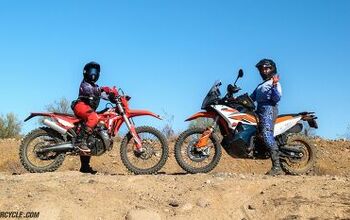

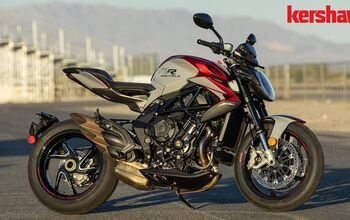
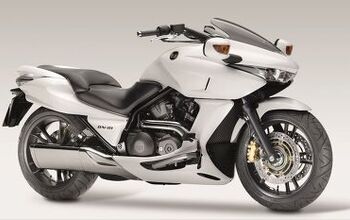

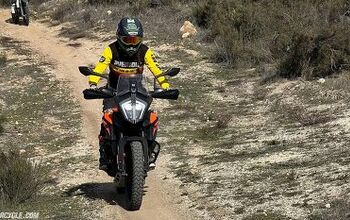
Comments
Join the conversation
Well written, informative article. 12 SX models available now, 15 years later. 2001 was also the first year KTM won the Dakar, and has won every year since.
KTM takes off roading seriously. As a serious trail rider (not an MX rider, although KTM now has really good bikes for that too) I really appreciate their approach. The time frame this article was written was the real beginning of the assault as we know it.